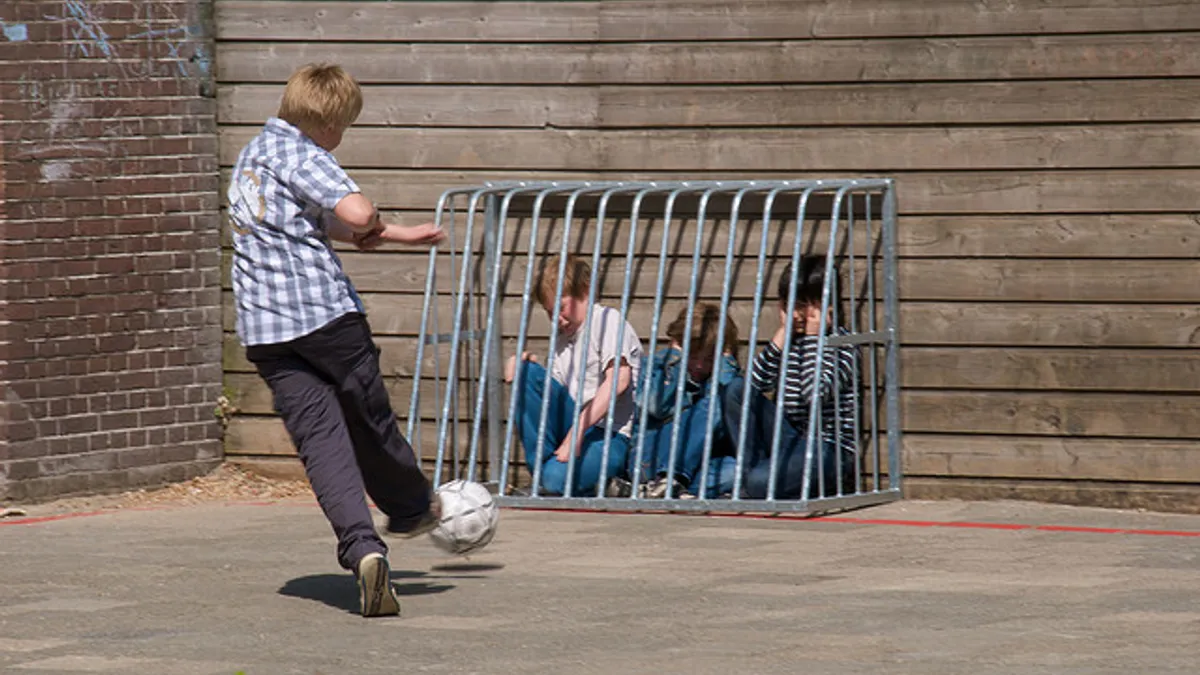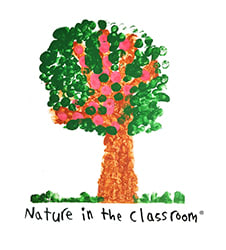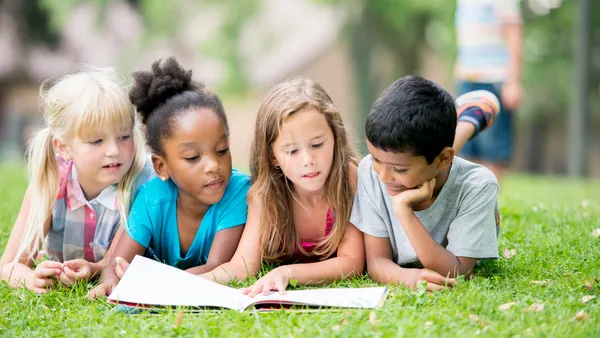Dive Brief:
- Though reports of bullying in schools appear to be on the decline, 28% of all students in the United States experience cyberbullying and nearly 25% are bullied in person — often when there are no adults around to intervene.
- However, Anti-Defamation League Director of Curriculum Jinnie Spiegler writes for Edutopia that schools can empower students to help prevent and disrupt acts of bullying by teaching them to ally with targets of bullying in order to support them and help them report the act to a trusted adult.
- Schools can teach these strategies by using incidents of bullying as teachable moments, by using stories and literature to provide examples, and by teaching explicit lessons using curriculum and exercises.
Dive Insight:
In the past, schools tended to be divided into three groups: students who bullied, students who are targets of bullying, and students who stood aside and watched it all happen. However, if schools can mobilize the bystanders to support the victim, bullying would decline, not only because the victim has support, but because the bully loses an appreciative audience.
One way to empower students in this manner is by building emotional intelligence, which is a by-product of social-emotional learning. Dr. Susan Rivers, who formerly served as the deputy director of the Yale Center for Emotional Intelligence, defines emotional intelligence as “the ability to recognize, understand, label, express, and regulate emotions, both one’s own emotions and those of others.” Students, who are much more in tune with peer dynamics than most teachers are, often are the best equipped to experience emotional intelligence in defusing a bullying situation.
However, teachers still play a role, not only in teaching strategies to combat bullying, but also by serving the first responders to most reports of bullying behavior. The way a teacher responds to these situations can make a big difference because students will be less likely to seek help if they feel they are being ignored. Teachers can also make a difference by teaching civility in the classroom and expecting civil behavior from students every day.













